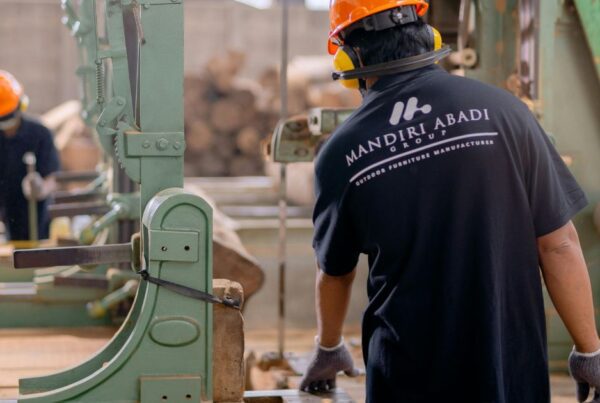 As global supply chains shift and businesses reconsider their sourcing strategies, reshoring (bringing operations back to your home country) and nearshoring (moving operations closer to your home country, often nearby regions) are becoming hot topics for 2025. But before you make a move, there’s a crucial step many business owners overlook: setting up the right legal structures. Without these foundations, your reshoring or nearshoring initiative could face costly setbacks.
As global supply chains shift and businesses reconsider their sourcing strategies, reshoring (bringing operations back to your home country) and nearshoring (moving operations closer to your home country, often nearby regions) are becoming hot topics for 2025. But before you make a move, there’s a crucial step many business owners overlook: setting up the right legal structures. Without these foundations, your reshoring or nearshoring initiative could face costly setbacks.
In this blog post, we’ll break down the legal considerations you need to address before moving operations, hiring employees, or signing contracts in your new locations.
Why Legal Structures Matter When Reshoring or Nearshoring
You might think that shifting operations closer to home is just a logistical challenge. The reality is, without proper legal planning, you could face:
- Liability for international contracts or partnerships
- Tax complications and exposure
- Disputes with suppliers, manufacturers, or distributors
- Compliance issues with labor and environmental laws
A solid legal foundation not only protects your business but also smooths the path for scaling operations in the future.
What Legal Entity Should I Form for My New Operations?
Choosing the right legal entity is one of the first decisions you’ll make when reshoring or nearshoring. Business owners commonly ask:
- “Should I form an LLC or corporation in the U.S. for my reshored operations?”
- “Do I need a local entity in another country for nearshoring?”
Key Considerations:
- Liability Protection: Limiting personal exposure to business risks.
- Tax Implications: Certain entities offer tax advantages depending on location and structure.
- Operational Flexibility: How easy it is to open bank accounts, hire staff, and enter contracts.
In many cases, a combination of a U.S. parent company with local subsidiaries or branch offices in nearshore countries provides the best mix of flexibility and protection.
Do I Need Contracts with Local Suppliers Before Moving Operations?
Yes, one of the most common mistakes businesses make is assuming verbal agreements or informal contracts are sufficient. Before reshoring or nearshoring:
- Draft supplier and vendor contracts that clearly define pricing, delivery schedules, and liability.
- Include dispute resolution clauses, specifying arbitration or court jurisdiction.
- Protect intellectual property, trade secrets, and proprietary processes in non-disclosure agreements (NDAs).
Proactive contract management reduces the risk of costly disputes and ensures smooth operations from day one.
How to Protect My Business From Labor Law Risks
When moving operations, labor law compliance is critical. Business owners often ask:
- “What labor laws do I need to follow if I nearshore to Mexico or the Caribbean?”
- “How do I handle hiring, employee benefits, and terminations legally?”
Key steps include:
- Understanding local employment laws, including wage and hour requirements, termination procedures, and union regulations.
- Drafting employee agreements and handbooks that reflect local legal requirements.
- Ensuring compliance with immigration rules if transferring staff between locations.
Labor law compliance isn’t just about avoiding fines; it’s about building a reliable, stable workforce for your new operations.
Tax Planning for Reshoring and Nearshoring
Taxes can make or break a reshoring strategy. Companies often overlook:
- Corporate taxes on new subsidiaries
- Transfer pricing rules for international operations
- Local incentives for creating jobs in certain regions
Working with both legal and accounting experts ensures your business structure minimizes exposure while maximizing incentives offered by U.S. states or nearshore countries.
Protecting Intellectual Property and Trade Secrets
Moving operations can expose your business to IP risks. Questions we hear frequently:
- “Do I need to register trademarks or patents in another country?”
- “How do I protect my processes when partnering with local manufacturers?”
Strategies Include:
- Registering patents, trademarks, and copyrights in jurisdictions where your operations will be located.
- Drafting NDAs and IP assignment agreements with employees, contractors, and partners.
- Monitoring IP enforcement mechanisms in new regions to prevent infringement.
How to Choose the Right Legal Team for Reshoring or Nearshoring
Finally, having the right legal team can save your business time, money, and headaches. Look for attorneys who can:
- Draft and review cross-border contracts
- Advise on corporate structures and compliance
- Navigate labor, tax, and IP law in multiple jurisdictions
- Offer practical solutions that align with your business strategy
At Ayala Law, we guide businesses through every step of reshoring or nearshoring, ensuring that legal structures are in place so operations start smoothly and stay protected.
Key Takeaways for Businesses Considering Reshoring or Nearshoring
- Start with the right legal entity – your corporate structure matters.
- Secure strong contracts with suppliers and partners before moving.
- Comply with labor laws in all jurisdictions.
- Plan for taxes and incentives proactively.
- Protect intellectual property from the outset.
- Work with experienced legal counsel familiar with both U.S. and nearshore regulations.
Thinking of reshoring or nearshoring your business in 2025? Contact one of our experienced business litigation attorneys in Miami at 305-570-2208.
You can also email our founding attorney Eduardo A. Maura directly at eduardo@ayalalawpa.com or schedule a case evaluation online here.
[The opinions in this blog are not intended to be legal advice. You should consult with an attorney about the particulars of your case.]
Subscribe to Our Blog
Stay informed with our latest blog posts delivered directly to your inbox. Gain valuable legal insights, tips, and advice from our seasoned attorneys.







